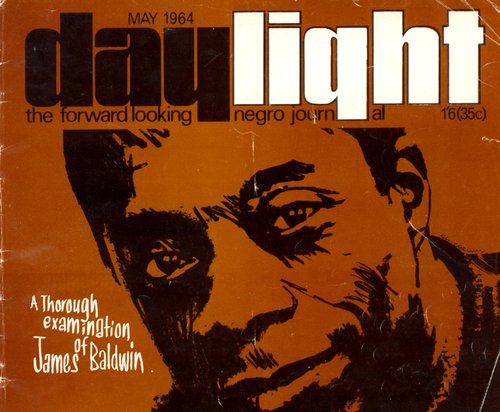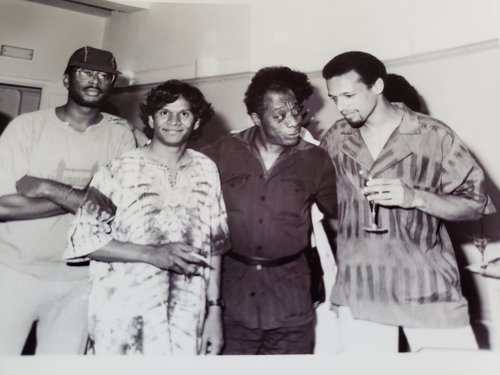This project explores the American writer James Baldwin’s complicated relationship to Britain, and to British culture. Born in Harlem, in 1924, Baldwin became a globally esteemed author and activist during the 1960s, renowned as one of the most eloquent voices of the civil rights movement and a fêted transnational writer. At the centennial of his birth in 2024, this project proposes a reappraisal of how Baldwin has influenced British-based artists, intellectuals, and activists, as well as challenging the consensus that the writer’s relevance and impact diminished during the 1970s and 1980s. Baldwin visited the UK on numerous occasions. A sharp commentator on British ‘race relations,’ he won a televised debate at the Cambridge Union in 1965; gave high-profile speeches in support of Black prisoners in Westminster, in 1971; was awarded an honorary doctorate by the University of Hull in 1976 and was the subject of a major ITV documentary, I Heard It Through the Grapevine, in 1981. In his final years, when Baldwin's reputation was at a low ebb elsewhere, his first play, The Amen Corner, became the first Black British production to reach the West End.
Despite his growing prominence globally, studies of Baldwin's international profile overlook his notable presence in British culture, and his long-standing influence on generations of Black British artists and activists. Similarly, they elide Baldwin's insights into Britain's colonial past. There has also been minimal work on Baldwin’s significance as a writer of queer fiction in Britain, and of the legacies of his novel, Giovanni’s Room, first accepted for publication by the British publisher, Michael Joseph, in the mid-1950s, when homosexuality was banned on both sides of the Atlantic. The project reflects on Baldwin's status as a global writer and activist, a literary and public figure whose work cuts across genres and disciplines. It is led by an experienced international team of scholars from Literary Studies, Politics, and History.

James Baldwin on the cover of Daylight Magazine, May 1964. (Image courtesy of Lambeth Archives).
Daylight was ‘one of the numerous magazines that targeted the growing Black population in Britain, that went to a few editions in the 1960s before being discontinued’ (Information from Lambeth Archives). The full cover featured an illustration of James Baldwin and a photograph of Jamaican pop singer, Millie Small, whose hit song, 'My Boy Lollipop' was released in Britain that year. The article, ‘A Thorough Examination of James Baldwin,’ was by writer Lindsay Barrett (a friend of Baldwin’s, who knew him when he was living in Paris). Image courtesy of Lambeth Archives.

James Baldwin with (from left to right) writers: Caryl Phillips, David Dabydeen, and Fred D'Aguiar, 1985.
Baldwin presenting awards at the Greater London Council Literature Awards, 1985. From the personal archive of Fred D'Aguiar.
Project Aims
- A comprehensive database of James Baldwin in British print media from the 1950s to the 1980s, which will be complemented by a two-day symposium of academics, artists and activists who will discuss Baldwin's wide-ranging impact.
- An edited academic volume which will further scholarship on Baldwin as an author and activist who transcended Black, queer, and transnational identities, as well as documenting his relationship to Black British feminism.
- An oral history project that will collect testimonies from artists and activists who knew and/or have been influenced by Baldwin's life and work. High quality recordings and transcriptions of these interviews will be made freely available, and an accessible edited collection that mixes interviews and essays by participants will be produced.
- Two film programmes that will analyse Baldwin, the 'celebrity’. Collaborations with the Barbican in London have already taken place and in September 2024, in collaboration with HOME, in Manchester, the project screens three films exploring Baldwin’s legacies as a writer and activist.
- A creative programme of events for young people exploring Baldwin’s legacies in Britain.
